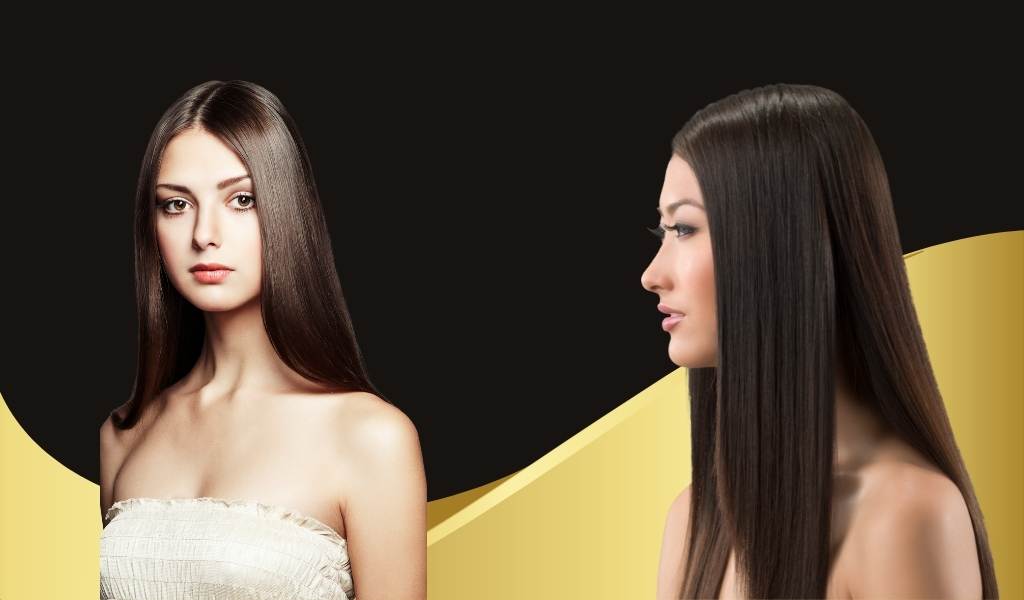Are you worried about hair fall and thinning of your hair? No need to worry anymore! Thinning hair is common these days, and it may affect any person. The factors responsible for thin hair include stress, hormonal issues, thyroid problems, smoking, prescription drugs, aging, illnesses, chemical allergies, genetics, and poor nutrition.
Hair grows approximately six inches yearly, depending on age, genetics, and diet. It is not possible to change the size of your hair follicles. If you have fine and thin hair by birth, it’s genetics. You can’t alter the nature of the hair; what you can do is maintain your hair health, add volume, and restrict it from getting thinner.
Losing 100 hairs per day is normal. If it goes beyond 100, you may say it is hair loss. Try to understand what’s wrong with your hair. Health experts at emeds understand how a healthy lifestyle can make your hair thicker. Continue reading the article and explore valuable information for thicker hair.
Getting thick hair is all about healthy choices like eating healthy, sticking to natural products, being kind to your strands, and taking supplements.
Eat a Healthy Diet
A nutritious diet contains proteins, healthy fats, and vitamins that help thicken thin hair. Adequate nutrients in the diet are essential for healthy hair. Healthy nutrition helps hair follicles to construct hair of average thickness. Protein, vitamins A, C, and E, folate, iron, and omega-3 fatty acids are essential for hair growth. In addition, make sure to include eggs, lentils, green leafy vegetables, and nuts in the diet to improve your hair health. On the other hand, thin hair might signify that you are not taking sufficient nutrients.
The nutrients essential for the thickness and growth of hair are:
Protein
Protein is a crucial micronutrient in overall hair health. Protein (Keratin) builds up hair follicles and is essential for strong thick hair. Hair consists mainly of protein, and not getting enough means thinning hair. The sources of protein are eggs, meat, and dairy products.
Iron
Iron is essential as it carries oxygen throughout the body, including hair follicles. It also aids in the repair and growth of cells. Some types of hair loss are directly linked to iron deficiencies. Conversely, increased iron and zinc intake improve hair health. The sources of iron are meat, spinach, kidney beans, chickpeas, oysters, crabs, and other seafood.
Vitamin C
Vitamin C has antioxidant properties, which help protect hair follicles from damage. Vitamin C is also essential for collagen production, which can strengthen hair. Foods with vitamin C are berries and citrus fruits.
Omega-3 fatty acids
Omega-3 helps the body fight inflammation. However, inflammation may also be the cause of premature hair loss. Sources of omega-3 fatty acids are fatty fish (salmon, sardines, tuna, and trout), olive oil, walnuts, almonds, and other nuts.
Add avocado to your daily diet plan. Avocado has significant dietary fiber, potassium, magnesium, vitamins A, C, E, folate, and B6. In addition, it prevents hair loss and breakage, promotes hair growth, and reduces scalp inflammation.
Scalp Massage
Massaging is not just for relaxation. Massaging your scalp may help your hair grow thicker and more robust. It helps to remove dead skin cells and stimulate blood flow to the hair follicles. When you massage your scalp, gently apply pressure with your fingertips around your scalp to facilitate blood flow. Make a hair care regime and follow it strictly. You have an increased risk of damage if you have thin hair, as light hair is fragile. Follow these tips to prevent hair damage:
- Use a mild shampoo that does not remove moisture
- Use a moisturising conditioner to reduce breakage and split ends
- Leave some conditioner in hair after washing and conditioning to prevent frizz and breakage
- Wrap your hair in a microfiber towel before drying
- Avoid curling or flat irons as these may weaken your hair
Try to have a scalp massage with peppermint and argon oil four minutes a day and see the wonders it does. You can use any oil (coconut oil, castor oil, olive oil) for scalp massage. However, always use your essential oils, like lavender oil, with carrier oil.
Shampoo Hair with Lukewarm Water
Do not wash your hair every day. Wash hair when they start getting oily. Shampooing your hair with super-hot water may also damage hair. Hot water potentially dries your scalp, removing the natural oils from your head. In addition, a hot water shower damages the keratin. It leads to hair breakage, which leaves you with thin and lifeless hair. Try to use lukewarm water every time you wash your hair. It also helps reduce frizz from hair.
Skip Sulphate Shampoos
When it comes to thicker hair, Sulphates are not good. Shampoos containing Sulphate might be strong cleansers and give the illusion of voluminous hair, resulting in ultimate hair damage. Sulfates are responsible for skin irritation, dry out strands, and cause inflammation. A shampoo containing Sulphates (Sodium Lauryl Sulphate and Sodium Laureth Sulphate) strips away sebum, essential natural oil for strong and healthy hair. These factors can cause increased shedding and breakage, especially in those with naturally dry strands and curl. It is best to stay away from Sulphate shampoos. These crude lathering agents can dry your hair and may deprive you of hair colour and natural oils.
Quit Smoking
Smoke is a pollutant that may damage your hair and skin. Research shows a strong link between hair loss and smoking. To improve your hair health, stay away from smoking. Cigarettes cause damage to the DNA of your hair follicles. Smoking is the biggest culprit for thin and damaged hair.
Take Vitamins and Supplements
Hair growth supplements are helpful for anyone experiencing hair loss or hair thinning. An oral supplement is absorbed in the bloodstream and nourishes all cells plus hair follicles. Hair depends on protein, iron, zinc, and vitamin B12, which support hair structure and growth and moisturise your scalp. If you lack the essential nutrients in your diet, go for supplements. Supplements like Biotin will help you grow healthier and shinier hair.

















